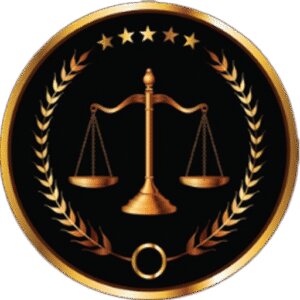Best Domestic Violence Lawyers in Neuquén
Share your needs with us, get contacted by law firms.
Free. Takes 2 min.
Free Guide to Hiring a Family Lawyer
List of the best lawyers in Neuquén, Argentina
About Domestic Violence Law in Neuquén, Argentina
Domestic violence in Neuquén is addressed within a national and provincial legal framework. At the national level, Law 26.485 provides a comprehensive approach to preventing, punishing and eradicating violence against women and other vulnerable persons. The law recognizes different forms of violence - physical, psychological, sexual, economic and symbolic - and establishes protective measures and state responsibilities. Provinces like Neuquén implement and complement the national rules through local regulations, protocols and services - including specialized police units, family and gender courts, public prosecutors and support programs. Victims have the right to file a criminal complaint, request urgent protection measures, obtain medical and psychological assistance, and access legal aid.
Why You May Need a Lawyer
Legal assistance is important in many domestic violence situations. A lawyer can help you understand your options, file the correct complaints, request protection measures, represent you in criminal or family proceedings, and coordinate with social and health services. Common situations when legal help is needed include:
- When you want to file a criminal complaint for assault, threats, sexual violence or stalking.
- When you need an urgent protection order - for example, to stop the aggressor from contacting or approaching you, or to have them removed from the shared home.
- When there are children involved and you need help with custody, visitation or protection of minors.
- When you need to request economic support, alimony or emergency financial measures.
- When you face repeated harassment or violations of protection orders and need enforcement or new measures.
- When you are accused of domestic violence and need defense counsel, or when you need to navigate parallel criminal and family procedures.
- When you need to preserve, present and authenticate evidence - such as medical reports, photos, messages or witness statements.
Local Laws Overview
Key aspects of the legal framework relevant to domestic violence in Neuquén include:
- National framework: Law 26.485 recognizes multiple forms of gender-based and interpersonal violence and mandates prevention, protection and reparation measures. It also requires state agencies to coordinate actions and provide services.
- Criminal protection: Acts such as physical assault, sexual aggression, threats and stalking can be prosecuted under the Argentine Penal Code and specific laws. Complaints may lead to criminal investigations, preventive detention in serious cases and criminal penalties when there is a conviction.
- Protection measures: Courts can order urgent protective measures - typically prohibiting contact, ordering exclusion from the shared home, imposing geographic or contact restrictions, and regulating custody and visitation to protect victims and minors.
- Family and civil remedies: Victims can pursue family-law remedies such as separation, divorce, custody claims, and requests for maintenance or economic support. Courts can adopt interim measures for the protection of children and for economic subsistence.
- Local implementation and services: Neuquén has local institutions and protocols to receive complaints, offer psychosocial care, operate shelters and coordinate with prosecutors and judges. Police units often have specialized divisions for gender violence and family matters.
- Specialized procedures: There are fast-track or priority procedures in many jurisdictions for domestic-violence cases to obtain timely hearings and protective actions, as well as requirements for forensic medical examinations to document injuries and harm.
Frequently Asked Questions
How do I file a complaint for domestic violence in Neuquén?
You can make a report at a police station, at a specialized ComisarÃa de la Mujer y la Familia if available, or directly at the Public Prosecutor's office. Reports can also be made at emergency services or health centers. The police must take your statement and arrange for your immediate protection. If you need legal guidance, a lawyer or public defender can help draft and follow up on the complaint.
What urgent protection measures can the court order?
Courts can order measures such as prohibition of contact, restriction of approach to the home or workplace, exclusion of the aggressor from the shared residence, removal of weapons, and temporary arrangements for custody or visitation. In urgent cases, judges can grant immediate precautionary measures while the matter continues through judicial procedures.
Can the police remove the aggressor from the home?
Police can take immediate steps to protect a victim, including separating parties at the scene and facilitating urgent measures. Removal of the aggressor from the shared home is typically formalized through a judicial order. In practice, police and prosecutors can request that a judge issue exclusion orders when there is imminent danger.
What evidence should I collect and preserve?
Keep medical records and a medico-legal certificate documenting injuries, photos of injuries and damaged property, screenshots or printouts of threats or harassing messages, witness names and contact details, records of calls or visits to emergency services, and any prior complaints. Store evidence safely and, if possible, share copies with your lawyer. Evidence is critical for criminal investigations and for proving the need for protection measures.
Are protection measures and criminal charges the same?
No. Protection measures are civil or precautionary actions intended to secure the victim's safety, while criminal charges address the offender's criminal responsibility and possible penalties. You can seek protection measures and file criminal charges at the same time. Both processes may run in parallel and require separate legal steps.
What happens if my aggressor violates a protection order?
Violating a protection order is a serious offense. If a restraining or exclusion order is violated, you should report it immediately to the police and to your lawyer or prosecutor. Violations can lead to criminal charges, arrest and stricter measures to protect you and any children involved.
How are children protected in domestic violence cases?
Courts prioritize the best interests of the child. If children are exposed to violence, judges can order temporary custody arrangements, supervised visitation, removal of the aggressor from the household, and immediate protective measures. Social services and child protection agencies may intervene to assess the child's situation and provide support.
Can I get free legal assistance?
Yes. Victims can access free legal assistance through the public defender office, legal aid programs and some government services. Provincial human rights or victims assistance offices often provide guidance and referral to legal and psychosocial support. If you cannot afford a private lawyer, request assistance from the DefensorÃa Pública or equivalent service in Neuquén.
What should I do if I am accused of domestic violence?
If you are accused, seek legal counsel immediately. Do not contact the alleged victim if there are protection orders in place. Gather any evidence that supports your case, and attend all judicial hearings. A criminal defense attorney can advise you on your rights, possible defenses and procedural steps.
How long do proceedings usually take and what outcomes can I expect?
Timelines vary widely. Urgent protection measures can be granted quickly, sometimes within days, while criminal investigations and trials can take months or longer depending on complexity and backlog. Possible outcomes include protective orders, criminal convictions with penalties, acquittals, mediation or family-law resolutions. Your lawyer can estimate likely timelines based on the specifics of your case.
Additional Resources
If you need help, consider contacting these types of local and national resources:
- National helpline for gender-based violence - call the national emergency number 144 for guidance and referrals.
- Local police - to report immediate danger and request urgent protection at the scene.
- Public Prosecutor's Office - to file criminal complaints and follow investigations.
- DefensorÃa Pública or legal aid services - for free legal representation and advice.
- Hospital emergency departments and forensic medical units - for treatment and medico-legal certificates documenting injuries.
- Provincial and municipal women’s or gender offices - for psychosocial support, shelter placement and specialized programs.
- Local shelters and non-governmental organizations - for temporary housing, counseling and accompaniment through legal processes.
Next Steps
If you or someone you know is facing domestic violence in Neuquén, consider the following steps:
- Ensure immediate safety - if you are in immediate danger, call the police or emergency services right away. If possible, move to a safe location or contact someone you trust.
- Seek medical attention - get medical care for any injuries and request a medico-legal certificate to document harm.
- Report the incident - file a complaint with the police or prosecutor so an official record exists and investigations can begin.
- Preserve evidence - save messages, photos, medical records and witness information in a safe place.
- Contact legal assistance - reach out to a lawyer, the public defender or a local legal aid office to understand your options and request protective measures.
- Use support services - access psychosocial support, shelters or hotlines for emotional and practical assistance.
- Follow up - keep in touch with your lawyer, the prosecutor and social services to monitor investigations, enforcement of protection orders and related procedures.
Getting legal help early improves your chances of obtaining protection and pursuing remedies. If you need guidance, seek a lawyer or public defender experienced in domestic violence and gender-based crimes in Neuquén.
Lawzana helps you find the best lawyers and law firms in Neuquén through a curated and pre-screened list of qualified legal professionals. Our platform offers rankings and detailed profiles of attorneys and law firms, allowing you to compare based on practice areas, including Domestic Violence, experience, and client feedback.
Each profile includes a description of the firm's areas of practice, client reviews, team members and partners, year of establishment, spoken languages, office locations, contact information, social media presence, and any published articles or resources. Most firms on our platform speak English and are experienced in both local and international legal matters.
Get a quote from top-rated law firms in Neuquén, Argentina — quickly, securely, and without unnecessary hassle.
Disclaimer:
The information provided on this page is for general informational purposes only and does not constitute legal advice. While we strive to ensure the accuracy and relevance of the content, legal information may change over time, and interpretations of the law can vary. You should always consult with a qualified legal professional for advice specific to your situation.
We disclaim all liability for actions taken or not taken based on the content of this page. If you believe any information is incorrect or outdated, please contact us, and we will review and update it where appropriate.









